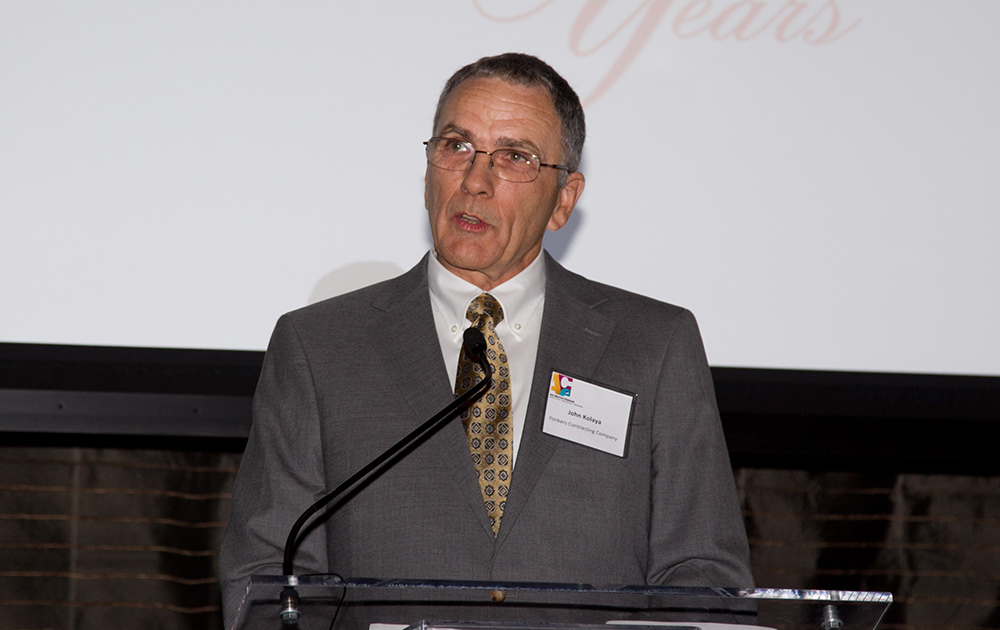John Kolaya ’70 was a sophomore chemical engineering major on a field trip when he beheld the World Trade Center under construction, little knowing that one day he would be involved in helping with its reconstruction decades later.
“I stood at the edge of the massive excavation pit lying more than 80 feet below,” he says. “From my vantage point, the subway tube suspended in the hole and the large construction equipment at the bottom looked like toys. It really shook my world,” prompting him to change his major to civil engineering.

Early on in his career, Kolaya was a project manager on the pile foundation for the original 7 World Trade Center. After 9/11, he returned to the Twin Towers as a search, rescue and cleanup volunteer, then contractor for the reconstruction of the PATH subway system.
His memories of the destruction are still painful. “Eighty floors of building collapsed into the 80-foot-deep foundation, leaving little more than tangled steel and white powder. That day and the many months that followed just tore my heart out. I knew people who died there.”
Although retired as president and chief operating officer of Yonkers Contracting Co., Kolaya isn’t out of the business. In October, he was elected to the National Academy of Construction. He’ll continue to support education in the classroom and the industry, an ongoing passion which has led him to lecture at Bucknell and Manhattan College, design a certification course for a minority and woman-owned business enterprise program and head a high-school mentoring program for students interested in construction and engineering.
Kolaya says his Bucknell training gave him critical-thinking skills to “understand the scope, goals, schedule, resources and engineering involved for work on massive projects such as 9/11 cleanup. You put that all together and make a plan of operation and execute the plan,” he says.